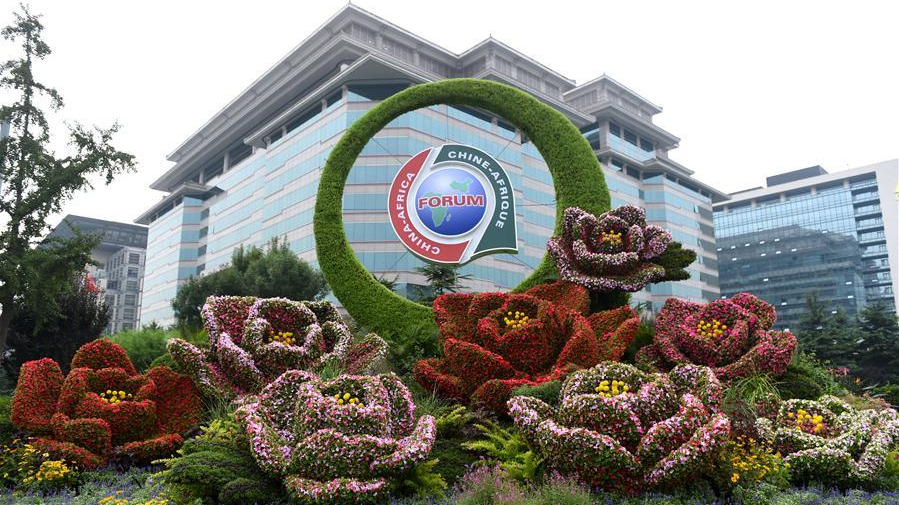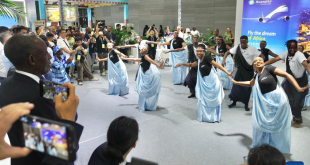
Keeping in line with the tradition of prioritizing Africa as the first foreign trip in the New Year by Chinese foreign ministers, Chinese State Councilor Wang Yi on January 4 launched official visits to select African countries including Nigeria, the Democratic Republic of Congo (DRC), Botswana, Tanzania and Seychelles. The trip will end on January 9.
The last similar visit by Wang was at the start of 2020 when he made a five-day official visit to Egypt, Djibouti, Eritrea, Burundi and Zimbabwe. Between 2008 and 2018, senior Chinese leaders made 79 visits to 43 African countries – a demonstration of the close-knit relations between the two partners.
This year Wang’s tour has taken greater significance than previous trips. Emergence of the COVID-19 pandemic has hit all countries globally, disrupting their social and economic development. With travel restrictions in force worldwide throughout 2020, opportunities to meet in person were scarce and the two partners resorted to holding virtual forums.
China and Africa were in regular communication with most of the discussions focusing on how to manage the pandemic. But it was not business as usual as pending or new projects could not be implemented. Consequently, the visit by the Chinese foreign minister is an opportunity for the partners to take stock of what transpired in 2020, how it affected the strategic cooperation and propose the way forward.
Last year was a litmus test of Sino-Africa relations. Any fears in Africa about the real intentions of the Chinese government were allayed from the massive support the latter offered during the crisis. At a time when African economies were reeling from the negative effects of the pandemic, China helped on several fronts to mitigate its damage and sustain the vulnerable economies. China worked through the challenges in international cargo transportation and delivered millions of anti-pandemic supplies particularly for women, children and adolescents to 53 African countries. Chinese philanthropists donated to help manage the pandemic. Definitely, this saved African countries millions of dollars that will help in ongoing efforts to jump start the stalling economies

China’s medical supplies for 18 African countries arrive at the Kotota International Airport in Accra, capital of Ghana, April 6, 2020. /Xinhua
With so many major countries struggling to contain the coronavirus much of last year, only China had the magnitude of resources to share with Africa after it subdued the pandemic in mid-year. The convening of the Extraordinary China-Africa Summit on Solidarity against COVID-19 in June was proof of the determination of both partners to overcome the insurmountable challenge. China’s help is among the main reasons why the incidences of infections and deaths have actually been negligible compared to other continents.
Towards the tail end of 2020, China and other members of the G20 agreed to suspend interest payments on all loans owed by poor countries, most of which are in Africa, as part of mitigating the ravages of the coronavirus. But China’s contribution went beyond the call of duty.
“China stands as a true friend of African countries and a partner with common purpose. Guided by the principle of sincerity, real results, amity and good faith, China has put the greater good of African countries above its own interests. We are always ready to play a part as the African people pursue the great dream of development and rejuvenation of their continent,” Wang noted in December during the UN Security Council High-level Debate on “Cooperation between the UN and Regional and Sub-regional Organizations with a Specific Focus on the United Nations and the African Union.”
Another issue that will come into sharp focus during Wang’s visit is the current state of the Forum on China-Africa Cooperation (FOCAC). On December 10, the 14th Senior Officials Meeting of the FOCAC was held in Beijing which discussed implementation of the outcomes of the Beijing Summit, reviewed the anti-pandemic cooperation between China and Africa, and discussed current international affairs and the rules of international diplomatic relations.
Further to the successful fight against COVID-19, both partners are looking forward to achieving more agendas including the African Union’s “Silencing the Guns” initiative and delivering on the 2030 Agenda for Sustainable Development.
Indeed, Wang’s visit has set both the mood and groundwork for the eighth Ministerial Conference of FOCAC that will be held this year in Dakar, Senegal.
It is also expected that the Belt and Road Initiative (BRI) will be on the table. Africa is one of the major pillars of the BRI and would not want to miss on the massive opportunities that the project offers for the continent’s socio-economic development. But in light of the stalling in 2020, Africa will look for guidance from China on how to proceed.
Of course, the skeptics will continue casting aspersions on the growing partnership by harping on any challenges, no matter how mundane. But this should never stop China and Africa from expanding their sphere of influence bilaterally, regionally and globally. The two partners should gather the spoils of the successes so far and forge ahead to greater heights of prosperity.
Stephen Ndegwa is a Nairobi-based communication expert, lecturer-scholar at the United States International University-Africa, author and international affairs columnist.
Cgtn.com
 Africa -China Review Africa -China Cooperation and Transformation
Africa -China Review Africa -China Cooperation and Transformation
